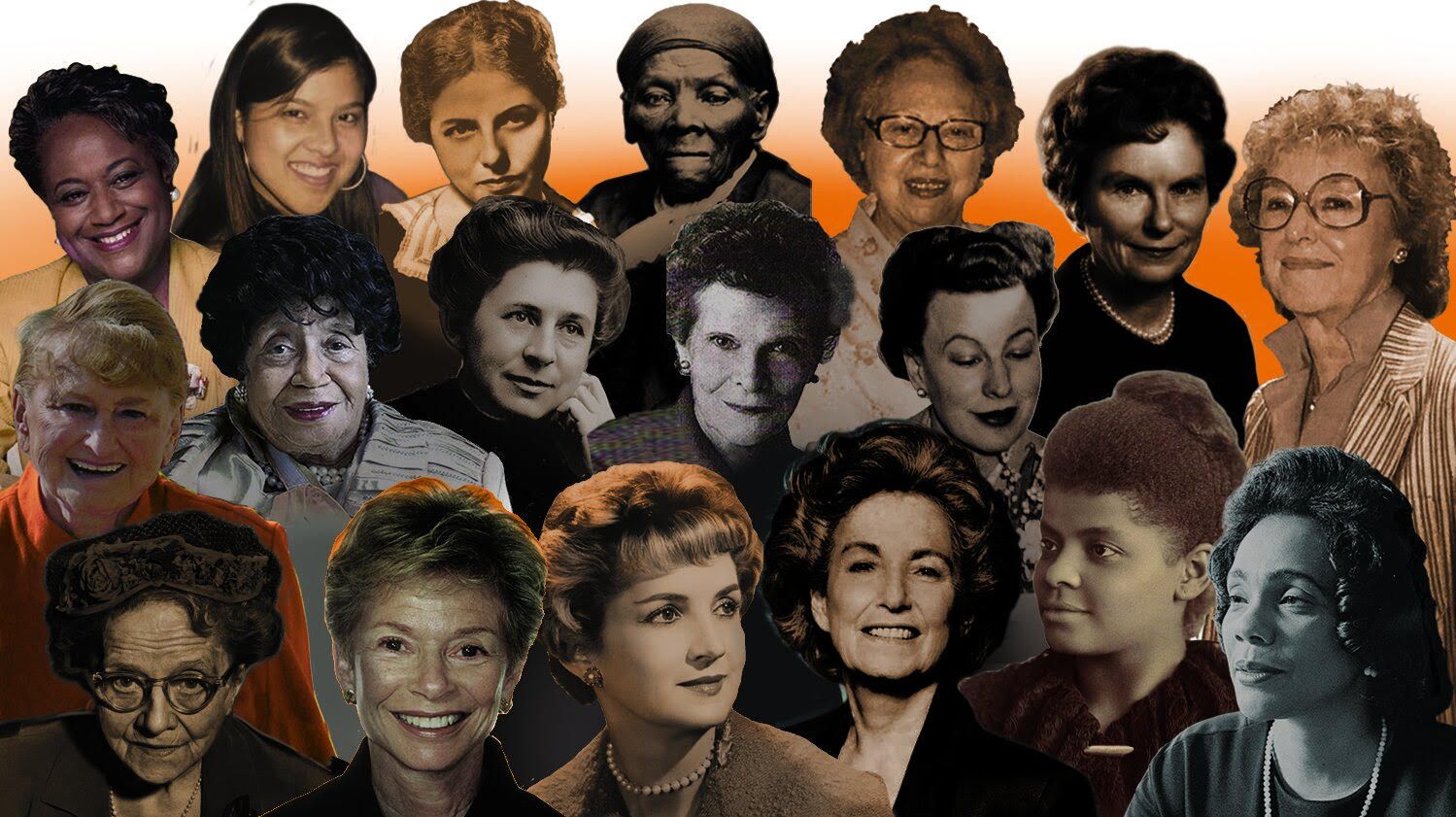Celebrating Women’s History All Year Long!
March is Women’s History Month so for 31 days we have an opportunity to highlight the contributions women have made and continue to make to our society. At First Chance for Children we like to incorporate Women’s History into many of the things we do and celebrate year round! By celebrating Women’s History, we can focus on the social-emotional development of being a good person, kind and strong. All of those components have led the women throughout history to be historical. Experts agree that it’s essential to celebrate Women’s History Month with kids of all genders. It is important to note that it is important for boys and young men to understand that women are just as powerful as men, and we have the ability to do anything, just like they can. You may be unsure how to speak with your child about Women’s History so here are some suggestions.
Start conversations with your children about the women in their life. You can teach your child about the women in your own family, like a grandmother or an aunt. That allows them to make connections with women and history. Once you have introduced that concept, you can expand by letting them know women’s history means all of the people who were here before us. It is about celebrating contributions to society.
As children enter elementary school, you may be able to point to a woman in the news, such as Vice President Kamala Harris, or in a book.
How Did Women’s History Month Start?
Women’s History Month is actually a relatively new celebration. It began in the Sonoma, California school district in 1978 as a weeklong celebration of women’s contributions to society. Students participated in a “Real Woman” essay contest, several schools held presentations, and there was even a parade. It caught on. In 1980, President Jimmy Carter declared the week of March 8 Women’s History Week, and Congress passed a resolution the following year that established a national commemoration. The National Women’s History Project successfully petitioned the U.S. government to turn Women’s History Week into a month-long celebration in 1987.
Why Else Do We Celebrate Women’s History Month?
Women didn’t always have the right to do what they can do today, such as work, vote, have a bank account, and own a home. It also took nearly two-and-a-half centuries for a woman to become vice president of the United States.
“You can tell your children, ‘We celebrate things so we don’t forget them,'” suggests Regine Muradian, Psy.D., a California-based clinical psychologist and author. “‘We celebrate so we honor how hard women fought to get to where they are today.'”
Is There a Men’s History Month?
This question may come across as insensitive, but remember that children may be genuinely curious. Take a step back and answer honestly and authentically. Dr. Green suggests saying, “For a lot of our history, men ran the world. They were in charge of decisions, owned the land, and had the money. Women did not have these choices. We have a lot of catching up to do when it comes to learning about the women in our past. We know a lot about the men. Women deserve to be celebrated.”
How to Celebrate Women’s History Month and all year long at home
Celebrating Women’s History Month at home reinforces lessons learned in school and also emphasizes the importance of honoring and respecting women.
Play a game
Turn family game night into a celebration of women’s history. Together, research facts about famous women, such as poet and civil rights activist Maya Angelou and Helen Keller, an educator, advocate for the blind and deaf, and co-founder of the American Civil Liberties Union (ACLU). Then write them down on scraps of paper and play “Guess Who?” You can always adjust this based on the child’s age.
Read together
Books start conversations. Some of the books we recommend for Women’s History include Kamala and Maya’s Big Idea, Ambitious Girl, I Am Enough, She Persisted, and Ada Twist, Scientist. We also recommend I am Jazz by Jessica Herthel and Jazz Jennings, a book about the real-life experiences of Jennings, who is a transgender woman and LGBTQ activist.
Show gratitude
Women’s History Month isn’t just a celebration of famous women, but it’s also a celebration of the women in our lives. Have children write thank you notes to women who have helped them. It teaches recognition of efforts.
Remember diversity
It’s important to celebrate women of all races and ethnicities and talk about members of the LGBTQ community. All women, regardless of their background, should feel validated, commemorated, and appreciated. This is how we move forward. Parents can do this by picking out books with diverse characters. Stories about Rosa Parks’ life can also help spark conversations about the intersection of race and gender. Families can also talk about women like the Honorable Ketanji Brown Jackson, who is a current nominee for the Supreme Court, awaiting Senate confirmation.
At First Chance for Children, we believe in the importance of celebrating differences and talking about diversity all year long. Women’s History Month just gives us another opportunity to talk with our children and celebrate women in our history.

